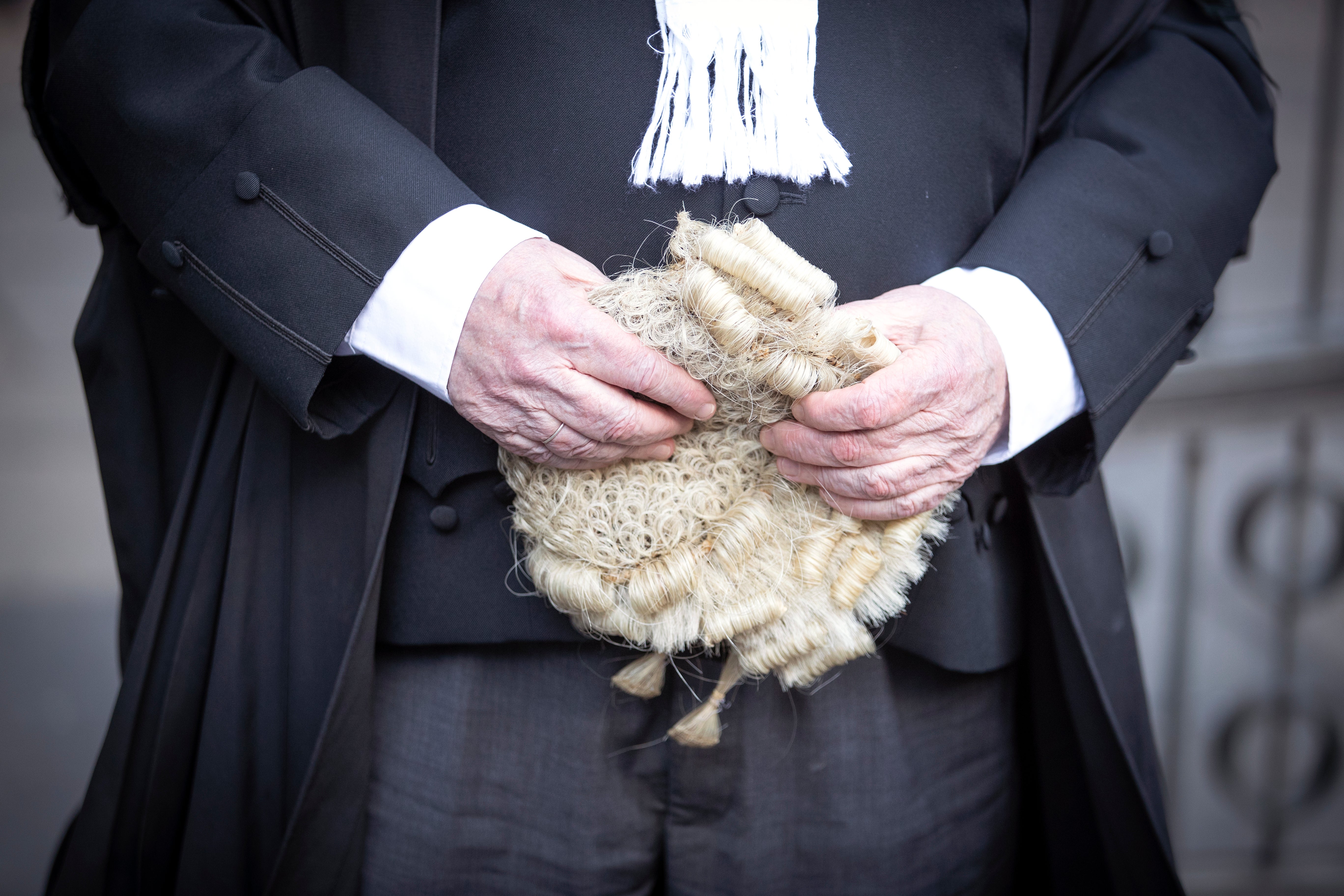Proposed legal reforms amount to interference with rule of law, judges warn
Under government proposals, a single regulator would be created for the legal profession and accountable to MSPs.

Your support helps us to tell the story
From reproductive rights to climate change to Big Tech, The Independent is on the ground when the story is developing. Whether it's investigating the financials of Elon Musk's pro-Trump PAC or producing our latest documentary, 'The A Word', which shines a light on the American women fighting for reproductive rights, we know how important it is to parse out the facts from the messaging.
At such a critical moment in US history, we need reporters on the ground. Your donation allows us to keep sending journalists to speak to both sides of the story.
The Independent is trusted by Americans across the entire political spectrum. And unlike many other quality news outlets, we choose not to lock Americans out of our reporting and analysis with paywalls. We believe quality journalism should be available to everyone, paid for by those who can afford it.
Your support makes all the difference.Proposed changes to Scotland’s legal system amount to “an interference with the rule of law”, senior judges have said.
A consultation document published by the Scottish Government laid out proposed changes to how the legal profession is regulated.
Each of the three proposals call for the creation of a regulator that would take over the current system and be accountable to the Scottish Parliament – raising fears over the independence of the judiciary and legal profession.
The idea of a single regulator for the sector was a recommendation of a review undertaken by Esther Roberton.
The Lord President – the head of the judiciary in Scotland – is the ultimate regulator of the legal profession.
A summary of the full consultation response on behalf of senior judges said: “To be clear, such an interference with role of the Lord President and the Court of Session in the manner proposed in this consultation is, in our opinion, an interference with the rule of law.
“The judiciary will resist with all its strength this and any other attempt by government or parliament to remove the court’s regulatory powers.”
In their full consultation response, the judges said: “It would serve only to harm the independence of the legal profession, and in turn impinge upon the independence of the judiciary.
“A system in which a profession is answerable to parliament is inherently against independence.
“Political regulation is simply not appropriate under any circumstances. It is no exaggeration to say that the recommendations proposed by the Roberton report present a clear threat to the separation of powers and consequently, the rule of law.”
The dangers of transferring ultimate regulatory power to a body politic, cannot be overstated
The response stressed the importance of the ability of a lawyer to take action against the government and pointed to a spat between the UK Government and the legal profession as an example of why politicians should be far from regulation of the sector.
“The dangers of transferring ultimate regulatory power to a body politic cannot be overstated,” the submission said.
“Recently, we have seen attacks on lawyers by politicians who have, on multiple occasions, publicly criticised ‘lefty activist lawyers’ for ‘hamstringing’ the justice system by challenging the government in court.
“This type of incident is extremely concerning and was widely condemned by the legal profession.
“It perfectly illustrates why neither political nor government regulation is an appropriate model for regulation of the legal profession.
“It is of critical constitutional importance that there is an independent legal profession capable and willing to stand up for the citizen against the government of the day.”
A spokesman for the Scottish Government said: “We thank the judiciary for their response to the consultation, which has generated a wide variety of opinions, and will carefully consider their views.
“Scotland has one of the best legal professions in the world, however, improvements are needed to further support access to justice in modern Scotland.
“Ministers will carefully consider all the consultation responses and a report will be published in due course.”